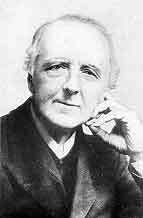 He doth execute the judgment of the fatherless and widow. Deuteronomy 10:18
He doth execute the judgment of the fatherless and widow. Deuteronomy 10:18
In the gate of the Eastern town, at early morn, the judge sits, and any suppliant has a right to appeal to him. The word Porte, or Gate, as applied to the Turkish Government, alludes to this. So to the thought of the inspired writers, behind the flimsy vail of sense, God sat within the shadow, "keeping watch upon His own," waiting to answer every plea, and to avenge the innocent and oppressed against high-handed wrong.
Individuals may appeal to that tribunal. - David, Jeremiah, and other sufferers, lodged their complaints there. Their cry was not for revenge, but for avengement. There is a great difference between the two. The one is vindictive and retaliatory; the other is magisterial and passionless.
Whenever an affront or wrong is inflicted on thee, avoid vindicating, or answering for thyself. Be still toward man, unless it be to induce thy brother to repent; but turn instantly to thy righteous Judge, asking Him to right the wrong and vindicate the right. He shall bring forth thy righteousness as the light, and thy judgment as the noonday. When Christians go to law, and seek to maintain their cause against wrongdoing, they miss this. The weaker you are, the more certainly will the Lord judge for you.
The Church may appeal. - Our Lord depicted her as a widow pleading to be avenged of her adversary. Her martyrs cry from under the altar, "How long, O Master, holy and true? Dost Thou not judge and avenge our blood?" To us the delay is long; but we know that He has no complicity with evil, and that He is faithful. Give us the white robe, that we may wait!

















